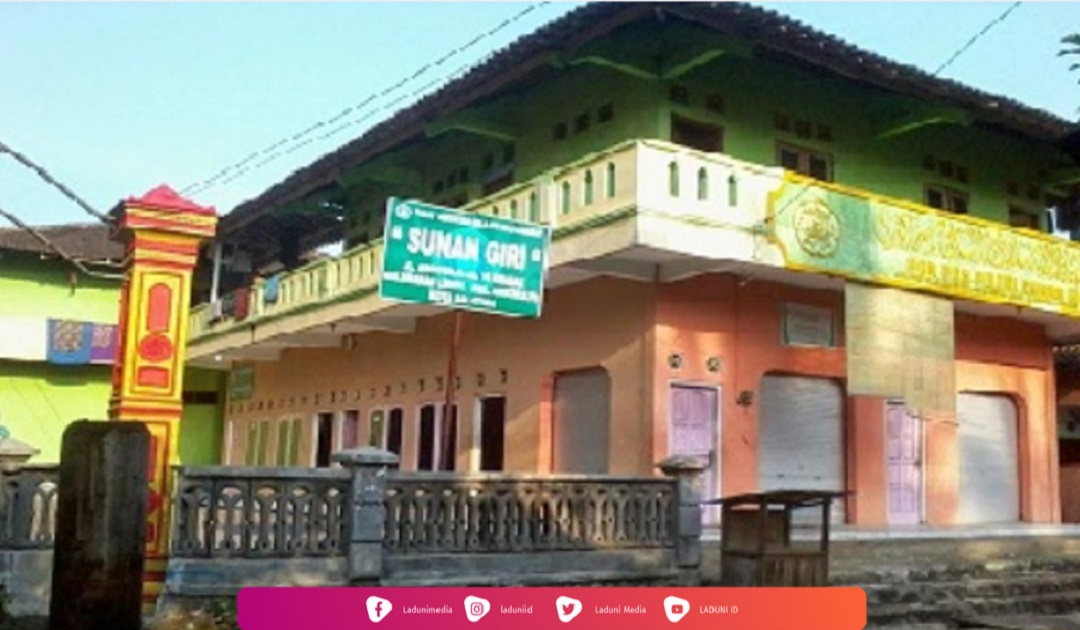Matchmaking in Sunan Giri Salatiga Islamic Boarding School: A Review of J.S. Mill's Utilitarianism
DOI:
https://doi.org/10.59698/quru.v2i3.197Keywords:
Utilitarianism, Matchmaking, JS Mill, Sunan Giri Islamic Boarding SchoolAbstract
This article analyses the concept of utilitarianism proposed by J.S. Mill and its application in the context of arranged marriages at Sunan Giri Islamic Boarding School in Salatiga. Furthermore, the purpose of this research is to analyse an arranged marriage that occurs in an Islamic boarding school using the theory of utilitarianism presented by J.S. Mill. The research applied is field research with a qualitative method that is descriptive analytical, and uses a phenomenological approach using J.S Mill's theory. Data was collected through interviews conducted with the parties involved both online and offline, which in this case is the Kiai of the pesantren or Abah Rikul and senior students and students who have been successfully matched. It was found that in terms of the causes and effects of matchmaking that occurred in line with the ultimate goal to be achieved by utilitarianism. The results showed that the arranged marriage that occurred at Pondok Sunan Giri was actually to maintain the principles of utilitarianism, namely as follows: a) In the aspect of usefulness that arranged marriages are actually to maintain the dignity of the santri themselves. b) Then in the aspect of justice, that arranged marriages that occur at the cottage are democratic in which the final decision holder is fully in the approval of the prospective bride and groom, c) Then then there are individual interests. As a basic capital, to serve in the community, d) Then the last is the public interest. In this case it is contained in the purpose of matchmaking where according to Abah Rikul the matchmaking must be able to have a positive effect on the benefit of as many people as possible.
References
Adhim, Z. A. (2019). Perjodohan Di Kalangan Keluarga Kiai Pondok Pesantren Lirboyo Kediri (Perspektif Antropologi Hukum Islam) (Doctoral Dissertation, UIN Sunan Kalijaga).
Ashri, M. Hak Asasi Manusia: Filosofi, Teori & Instrumen Dasar, CV. Social Politic Genius (Sign), 2018.
Basyaib, Fachmi. Teori Pembuatan Keputusan. Grasindo, 2006.
Bertens, K. (2022). Pengantar Etika Bisnis. Gramedia Pustaka Utama.
Berutu, Ali Geno, “Nikah Dibawah Tangan: Sebab Dan Akibat.” Al-Marjan: Journal Of Islamic Family Law Vol. 1 Juni 2023, 14-26.
Berutu, Ali Geno. "Kekuasaan Allah Dan Hukum Islam Bagi Manusia Dan Alam." (2020).
Chamidah, Atien Nur. "Pentingnya Stimulasi Dini Bagi Tumbuh Kembang Otak Anak." Tumbuh Kembang Dan Kesehatan Anak (2009): 1-7.
Darmodiharjo, D. (1995). Pokok-Pokok Filsafat Hukum: Apa Dan Bagaimana Filsafat Hukum Indonesia. Gramedia Pustaka Utama.
Results from an interview with Abah Rikul at his residence on Thursday 21 September 2023.
The results of the interview with the younger brother of Abah Rikul who is also one of the Ustadz or teachers at the Pondok on Thursday 21 September 2023.
Results from Interviews with the Five Pairs of Santri Who Have Been Successfully Matched (T, Aw, S, K and Mm).
Results from an interview with Kyai Maslikhuddin Yazid (Abah Rikul) at his residence on Thursday 21 September 2023.
Results from an interview with Ma, one of the senior santri, on Saturday 16 September 2023.
Kartanegara, “Pemikiran Etika Dan Kebahagiaan.”, Http://Repository.Uinjkt.Ac.Id/Dspace/Handle/123456789/43306
Koentjaraningrat, Metode-Metode Penelitian Masyarakat, Jakarta: Gramedia, 1997.
Compilation of Islamic Law
Law No. 1 Year 1974
Latifah, A. N. (2021). Tinjauan Maslahah Terhadap Proses Perjodohan Santri Di Pondok Pesantren Pendowo Walisongo Desa Sedah Jenangan Ponorogo (Doctoral Dissertation, IAIN Ponorogo).
Matondang, Armansyah, "Faktor-Faktor Yang Mengakibatkan Perceraian Dalam Perkawinan." Jppuma: Jurnal Ilmu Pemerintahan dan Sosial Politik Uma (Journal of Governance And Political Social Uma) 2.2 (2014): 141-150.
Mill, John Stuart, Utilitarianisme. Basabasi, 2020.
Muharir, M., & Haryono, S. (2023). Konsep Utilitarianisme Jhon Stuart Mill Relevansinya Terhadap Behavioral Economics. Ekonomica Sharia: Jurnal Pemikiran Dan Pengembangan Ekonomi Syariah, 9(1), 109-122.
Musyafah, Aisyah Ayu, "Perkawinan Dalam Perspektif Filosofis Hukum Islam." Crepido 2.2 (2020): 111-122.
Muzammil, Achmad, And Rissa Rismawati. "Implementasi Nilai-Nilai Tasawuf Dalam Pembinaan Akhlak Santri Di Pondok Pesantren Al-Fattah Pule Tanjunganom Nganjuk." Spiritualita 6.2 (2022): 109-131.
Pranowo, Y. (2020). Prinsip Utilitarisme Sebagai Dasar Hidup Bermasyarakat. Paradigma: Jurnal Filsafat, Sains, Teknologi, Dan Sosial Budaya, 26(2), 172-179.
Ramadhan Syahmedi Siregar, "Urgensi Persetujuan Bagi Kedua Calon Mempelai Dalam Perkawinan." Tazkiya: Jurnal Pendidikan Islam 6.1 (2017).
Rosada, “Cerdas Memilih Pasangan Hidup Hadiah Terindah Dalam Pernikahan Perspektif Hukum Islam,” 13.
Rikuls Expression at the Wedding of a Senior Santri Between Ir & As in June 2023.
Saepullah, A. (2020). Konsep Utilitarianisme John Stuart Mill: Relevansinya Terhadap Ilmu-Ilmu Atau Pemikiran Keislaman. Aqlania, 11(2), 243-261.
Saifuddin Azwar, Metode Penelitian, Yogyakarta: Pustaka Pelajar, 1999.
Shalih, S. F. (2005). Untukmu Yang Akan Menikah & Telah Menikah. Pustaka Al-Kautsar.
Sudarminta, Justinus. Etika Umum: Kajian Tentang Beberapa Masalah Pokok Dan Teori Etika Normatif. Pt Kanisius, 2013.
Suheri, Ana. "Wujud Keadilan Dalam Masyarakat Di Tinjau Dari Perspektif Hukum Nasional." Morality: Jurnal Ilmu Hukum 4.1 (2018): 60-68.
Sunggono, Bambang, Metode Penelitian Hukum, Jakarta: Raja Garafindo Persada, 2003.
Syahrial, M. (2021). Kebutuhan Dasar Manusia Menurut Ekonomi Islam. Indratech, 2(1), 51-61.
Syaikh Fuad Shalih, Untukmu Yang Akan Menikah & Telah Menikah. Pustaka Al-Kautsar, 2005.
Ugang, Yandi, "Analisis Utilitarianisme Dalam Penilaian Keadilan Dan Efektivitas Hukum." Transparansi Hukum (2022).
Wahid, Abdurrahman “Bunga Rampai Pesantren” Jakarta: Dharma Bakti, 1958
Zarkasih, Ahmad, L. (2019). Menakar Kufu Dalam Memilih Jodoh.

Downloads
Published
How to Cite
Issue
Section
License
Copyright (c) 2024 Muhammad Ova Lutfi Badrul Huda, Ali Geno Berutu

This work is licensed under a Creative Commons Attribution-NonCommercial-ShareAlike 4.0 International License.
Quru': Journal of Family Law and Culture





.png)







